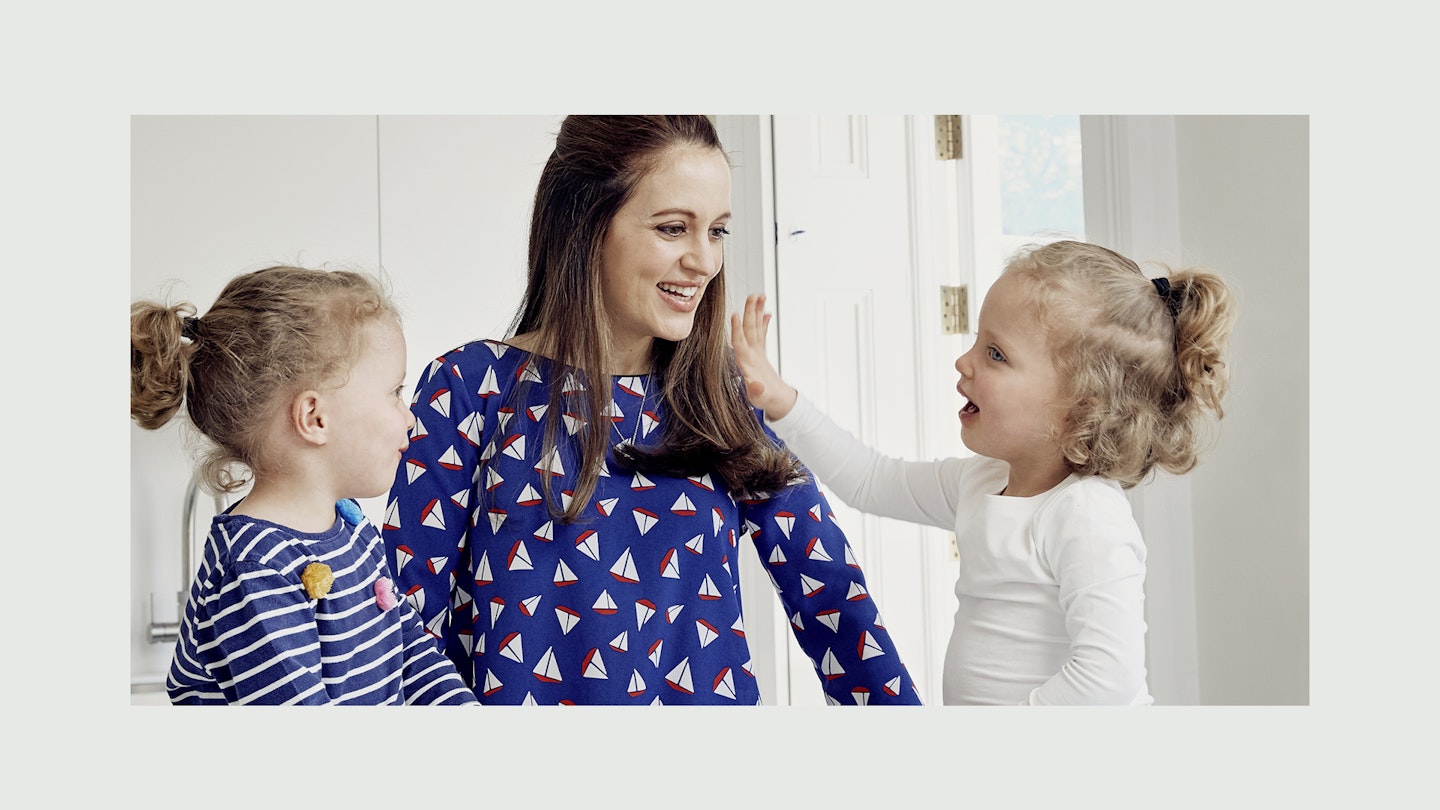Even when the obstetrician told me I would have to deliver my identical twins 10 weeks early, I could never have imagined that I would not be allowed to hold my babies the day they were born. I knew so little about prematurity. I was in my mid-thirties when I got pregnant and when, gelled probe on belly, the sonographer asked whether I had any twins in the family, I found myself laughing with joy and disbelief. Though carrying twins is inherently high risk, pregnancy made me feel young and strong – younger and stronger than I was, it turned out. At 29 weeks pregnant, for reasons that are still a mystery, I began to haemorrhage and needed an emergency Caesarean.
At birth, the girls, who we called Raffaella and Celeste, weighed 2lbs each. Without continuous medical support they could not breathe, nor eat, nor regulate their body temperature. It would be 56 days before they were well enough to come home. For those of us with no older children to care for, the world outside the neonatal intensive care wardfaded into insignificance. London had no weather, no season, and barely a time of day. My husband Gabe had to go back to work after just a few weeks, but often worked remotely from the bustling hospital canteen, Skyping into meetings while, around him, stressed visitors barked coffee orders and, from the ward above, I sent him endless updates about our daughters. We became shift workers, trying to make sure that one of us was always at the hospital.
The crucial moments were ward round in the morning, when the consultants would briefly appear to tell us the day’s medical plans, and the evening nurses’ handover, when we were required to leave the ward. It was winter; dark when I came in, dark when I left. There was nowhere at their bedside for me to sleep. Each night I had to go home, to silence. It would have been impossible for me to imagine how easily I could give up everything I thought I valued – work, friendships, sleep, personal appearance, any sort of independence or privacy. For those months, nothing mattered except what took place within the two incubators in which my struggling babies lay, curled in nests of rolled towels and faded hospital sheets, gaining gram by painstaking gram.
Meanwhile I found myself in a committed relationship with a piece of machinery. Rather than experiencing the tender union of breastfeeding a baby, I got used to a new soundtrack to my life: the ca-thunk, ca-thunk of an enormous hospital-grade pump. The twins were too weak to suck and swallow, and so for their tube feeds I expressed every two to three hours around the clock, setting an alarm in the small hours to pump, to cry, to call the ward. At night I ached for them. I took fistfuls of fenugreek supplements, reputed to increase milk supply, which meant that most of the time I smelled as if I’d moisturised with curry. And yet, unexpectedly, it was in the ‘milking shed’, a cupboard-sized room in which the ward’s mothers congregated to express, that I found solace.
There was something about the forced intimacy of semi-nakedness and the levelling vulnerability of shared circumstances that forged instant friendships. The camaraderie was healing.Early motherhood can be lonely, each woman isolated at home with the new babyshe is only just getting to know. But in hospital it was quite the opposite – a rare upside to the roller- coaster of prematurity. In the milking shed, there was always another woman beside you and, crucially, it was a woman who understood.
We were unified by our early babies and our terror at their uncertain futures, and so we shared our stories, passing around bags of Haribo like soldiers’ hip flasks. We laughed an improbable amount. While we learned to take care of our children, we took care of each other. I am inevitably and irrevocably changed by those long months that my girls spent in hospital. I am braver, and I am unembarrassable. Karaoke used to be my Room 101; singing in public just made me want to curl up and die. But in the NICU you must learn, in the few ways available, to become a mother under the unremitting surveillance of nurses, doctors and ward mates. My babies needed my voice – sometimes it was the only familiar reassurance I could offer them on the hard days when even touch was too much stimulation.
And so I sat in a room of strangers and sang Amazing Grace, or sometimes The Lion Sleeps Tonight, including all the a-wimba-ways. By the end, I had graduated to show tunes, complete with jazz hands. Self-consciousness would only deprive my daughters, so self-consciousness had to go. I was terrified to bring them home, but by the time the girls were ready I was ready, too – I had spent all those weeks learning how to be a mother and the final hurdle was shaking off the benign, loving interference of those who’d taught me. Now, the twins are three years old – funny and bonny little firecrackers who roar with laughter at their private jokes, and who are far and away the worst students in their football class because they prefer to stand at the back pretending to be dinosaurs – and I am weak with gratitude. I have forgotten none of it. The mother I might have been has been obliterated by this, the mother I now am. The trauma of their early days has scarred me, but it taught me, too.
‘Mother Ship’, a memoir by Francesca Segal, is published 6 June by Chatto & Windus
